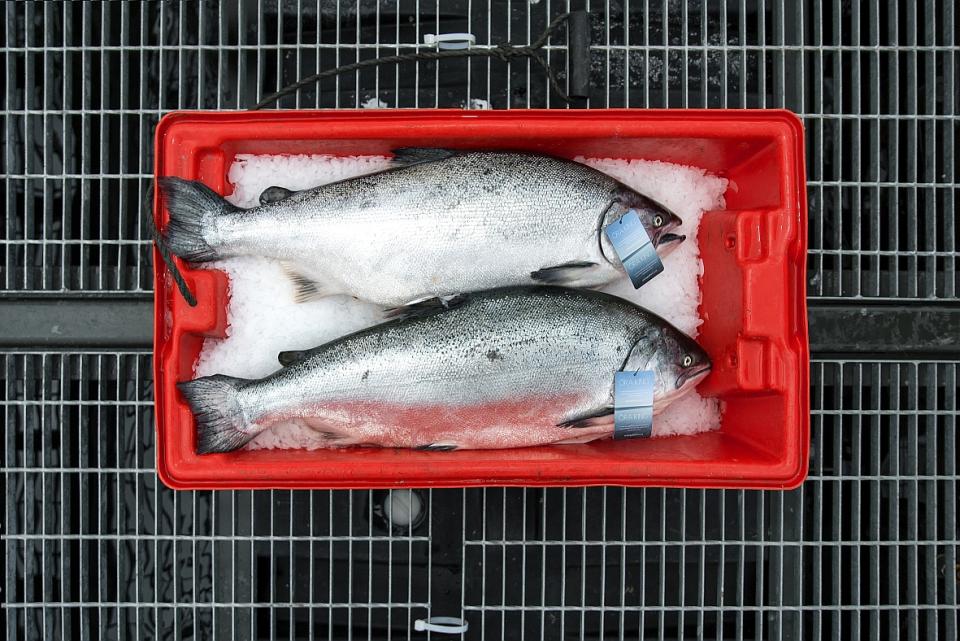New Marlborough salmon farms come on stream
Tuesday, 12 July 2016
The first new space allocated for salmon in Marlborough in nine years has finally come on stream with the official opening of two new salmon farms operated by New Zealand King Salmon.
The Pelorus Sounds farms at Waitata and Kopāua have been officially opened by the Minister for Environment and MP for Nelson Hon. Dr Nick Smith.
A third farm in the Tory Channel, Ngamahau has begun operating and an official opening is expected later in the year.
The sites add to the operating farms the company has in the Queen Charlotte Sound and the Tory Channel – Ruakaka, Otanerau, Te Pangu and Clay Point.
The three new farms will enable New Zealand King Salmon to approximately double salmon production from around 6,000 metric tonnes to 12,000 over the coming years.
The extra production is destined to fill the strong demand from international markets, in particular North America. The first harvest from the Waitata farm took place this week producing excellent quality salmon averaging more than four kilograms in size.
The farms are located on sites where the water is cool, deep and with high flow, optimal conditions for raising salmon. NZ King Salmon CEO Grant Rosewarne says salmon farming has helped put Marlborough on the menu as a world-class culinary destination. “Not only do we grow the best salmon in the world, we tell the NZ story with our brands.”
“Salmon represent one of the most sustainable ways of producing animal protein and these farms are an important addition to the regional economy. They also support the government’s commitment to creating sustainable food sources through aquaculture.
“These two new farms – and Ngamahau yet to be officially opened – are recognition of our commitment to meeting the best practice guidelines for salmon farming issued by the Marlborough District Council in 2013 and supported by our company.
“Our environmental credentials are in demand and internationally recognised through our accreditation with the Best Aquaculture Practices (BAP) certification, and we are in an elite group of less than one per cent of salmon farmers recommended as ‘Best Choice’ by Monterey Bay Aquarium’s Seafood Watch and Ocean Wise,” Rosewarne says.
The new sites are in the first stage of farming with small increases allowed every three years in accordance with resource consents and environmental conditions, Rosewarne says. It will be up to 16 years before each is fully productive.
“The farms provide green jobs for locals, support for local industry and suppliers and add to the region’s rapidly growing reputation for high quality seafood.
“Once fully operational, salmon farming in Marlborough will generate around $230 million in direct revenues plus flow-on business for local companies supporting the industry. These include transport operators, engineering firms, science providers, tourism operators, local contractors and retail shops.”
The name Kopāua was suggested by local iwi and is the historic name for the bay where it is located, while the Waitata farm is similarly named for its location. Both farms have been built to blend in with the local environment with nautical-style barges and muted camouflage colours. The pens are a new Wavemaster design with a lower profile. They are flexible so as to better cope with the seas in the more exposed sites of the Pelorus Sound.
The pens at the new farms measure between a third (Kopaua) and two thirds (Waitata) of a hectare - a rugby field is approximately one hectare - while they sit in water between 35 and 55 metres deep.
As part of the resource consents for Waitata and Kopāua, a Tangata Whenua Advisory Panel has been established to assist NZ King Salmon on matters of importance to the iwi in the exercise of their kaitiakitanga (guardianship).


